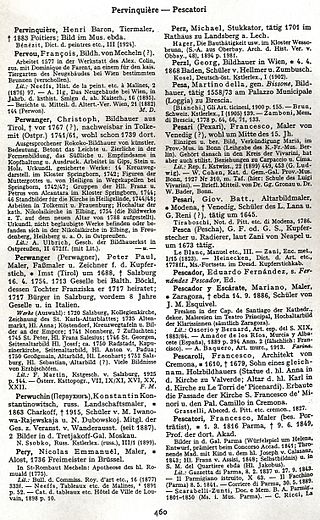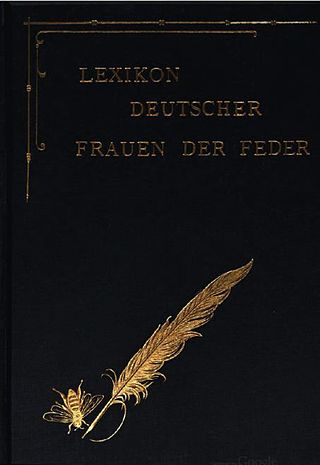
Jacob Ludwig Karl Grimm, also known as Ludwig Karl, was a German author, linguist, philologist, jurist, and folklorist. He formulated Grimm's law of linguistics, and was the co-author of the Deutsches Wörterbuch, the author of Deutsche Mythologie, and the editor of Grimms' Fairy Tales. He was the older brother of Wilhelm Grimm; together, they were the literary duo known as the Brothers Grimm.
Heinz Kähler was an ancient art historian and archaeologist.
Heinz Politzer was an internationally recognized academic and writer. As a young man he was forced to flee Nazism first to Palestine and then to the United States, where he taught German language and literature as a professor at the Bryn Mawr College, Oberlin College, and the University of California, Berkeley. He was a literary scholar, published poet, and prominent editor, particularly of Franz Kafka. As a close associate of Kafka's protégé, Max Brod, Politzer coedited with Brod the first complete collection of Kafka's works in eight volumes, published initially by the Schocken publishing house of Berlin during the early years of the Nazi dictatorship and subsequently by the successor firm Schocken Books in New York.
Rudolf Doehn was a German writer and journalist. He belonged to the Forty-Eighters who participated in the American Civil War as volunteers in the Union Army. Here, he became also known as Randolph Doehn.

Thieme-Becker is a German biographical dictionary of artists.
Heinz Ludwig Arnold was a German literary journalist and publisher. He was also a leading advocate for contemporary literature.
Julius Ludwig Ideler was a German philologist and naturalist. He was the son of astronomer Christian Ludwig Ideler.

Maria Anna "Mizzi" Zwerenz, married name Marie Guttmann was an Austrian opera singer (soprano), theater and film actress.
Wilhelm Franz Josef Kosch was an Austrian historian of literature and theatre and lexicographer. The lexicon that he conceived and later revised several times, the Deutsches Literatur-Lexikon is a references in the field of German literature.
The Deutsche Theater-Lexikon is, according to its subtitle, a "biography and bibliography manual". The encyclopedia lists stage actors from the German-speaking area.
Horst Deichfuß was a German writer.
Richard Hellmuth Baum was a German musicologist and music historian.
Hanns Richard Altermann was a German bookseller, editor, journalist and publisher.
Karl Ludwig Friedrich Wilhelm Gustav von Alvensleben (1800–1868) was a German writer.
Hedwig Forstreuter, was a German journalist and writer.
Karl Kamann was a German operatic bass-baritone.
Helmut Bartuschek was a German poet and translator of French literature.
Charlotte Miedke, néePfister, also Miedtke, was a German singer and stage actress.

Sophie Caroline Pataky, née Stipek was an Austrian bibliographer. Her two-volume Lexikon deutscher Frauen der Feder, published in 1898, was the first German-language encyclopedia of women writers edited by a woman.

Gustav Adolf Kröner, from 1905 von Kröner, was a German publisher and chairman of the Börsenverein der Deutschen Buchhändler. He became particularly well known for his demand for fixed prices for books, which was implemented in the so-called Kröner Reform and is still in force today. The publishing houses he managed, especially J. G. Cotta'sche Buchhandlung, which he had acquired and expanded in 1889, were also among the most important publishers in the field of humanities and literary publications, especially at the beginning of the 19th century and 20th centuries.




